-
Postów
1 409 -
Dołączył
-
Ostatnia wizyta
Treść opublikowana przez Andrew Alexandre Owie
-
RIS, BEAU PIERRE! OR THE IRREGULAR EMPRESS RIS, BEAU PIERRE! CZYLI NIEREGULARNA CESARZOWA I'M BIG ROMANCER, A-HA, A-HA! - Miss, will you sleep with me for 100 dollars? - NO!!! - Please, do me a favour. I'm really short of money! "Hey, Big Romancer" by the Arabesque - Panienko, prześpisz się ze mną za 100 dolarów? - NIE!!! - Proszę zrób mi przysługę. Naprawdę brakuje mi pieniędzy! *** By Andrew Alexandre Owie HARD TO BE PLEASED I cannot marry all the women! What are criteria for men? The short girls might be bad in bed, The fat girls are half-waist in sand, The merry girls are often pink, The sad girls make no love, extinct, The frigid ladies order: "Freeze!" The hot chicks always scratch and tease, The long-legged girls are all high-heeled, They'll tie you to their apron's strings. The clever ladies will deceive, The silly dames must not conceive, The beauties go to someone else, The ugly-faced are full of stealth, To choose a wife is not so simple, I gonna base my choice on dimples. Sandra Crețu Przez Andrew Alexandre'a Owie'ego TRUDNO BYĆ ZADOWOLONYM Nie mogę poślubić wszystkich kobiet! Jakie są kryteria dla mężczyzn? Niskie dziewczyny mogą być złe w łóżku, Grube dziewczyny są do połowy w piasku, Wesołe dziewczyny są często różowe, Smutne dziewczyny nie kochają się, wymierą, Oziębłe panie rozkazują: "Stoj!" Gorące laski zawsze drapią i drażnią, Długonogie dziewczyny są na wysokich obcasach, Przywiążą cię do sznurków fartucha. Sprytne damy oszukają, Głupie damy nie musią począć, Piękności idą do kogoś innego, Nieładne są pełne skradania się, Wybór żony nie jest taki prosty, Opieram swój wybór na dołeczkach. *** Catherine I, the Empress of Russia, had a French hairdresser with dimples on his cheeks that appeared every time when he laughed. Her Majesty used to ask him in French, "Laugh, beau Pierre!" ("Ris, beau Pierre!"). He did what he had been asked, and he had his great reward. Finally owing to his laugh and dimples he became a count whose name became ... Risbeaupierre. Και σύ, Antoine? Et tu, Antoine? You too, Antoine? Ty też, Antoine? (on the left) Antoine Marie Jean-Baptiste Roger vicomte de Saint-Exupéry arm-in-arm with his comrade-in-arms. (po lewej) Antoine Marie Jean-Baptiste Roger vicomte de Saint-Exupéry ręka pod rękę ze swoim towarzyszem broni Cesarzowa Rosji Katarzyna I miała francuskiego fryzjera z dołeczkami na policzkach, które pojawiały się za każdym razem, gdy się śmiał. Jej Królewska Mość zwykła pytać go po francusku: "Śmiej się, beau Pierre!" ("Ris, beau Pierre!"). Robił to, o co go poproszono, i otrzymał swoją wielką nagrodę. W końcu dzięki swojemu śmiechowi i dołeczkom stał się hrabią, którego nazwisko brzmiało... Risbeaupierre. *** THE IRREGULAR EMPRESS NIEREGULARNA CESARZOWA The Irregular Empress (Marina Fedunkiv, The COMEDY WOMAN'S Sketch) SCENE 1. THE FAVOURITES Cameraman: Quiet, please! Marina, where are your favourites? Marina: No idea! I’m not in charge for the extras! There's a woman who brings them. You'd better ask her! Cameraman: Then I have to go and see myself. Kostya (from Konstantin), Zhenya, where are you? Kostya! Zhenya! Marina! What’s it all about? SCENA 1. FAWORYTY Kamerzysta: Proszę o ciszę! Maryno, gdzie są twoje faworyty? Maryna: Nie mam pojęcia! Nie odpowiadam za statystów! Jest kobieta, która przyprowadzi je tutaj. Lepiej ją zapytaj! Kamerzysta: W takim razie muszę iść i zobaczyć na własne oczy. Kostya (od Konstanty), Żenia, gdzie jesteście? Kostia! Żenia! Maryno! Chcę wiedzieć, o co chodzi?! Marina: What? Shit! You shouldn’t have hired the wrong ones, those motherfuckers about your classified ads. I haven't felt any pleasure! Shit! Maryna: Co? Cholera! Nie trzeba było przyjmować byle kogo,tych skurwieli, publikując ogłoszenia o naborze. Nie poczułam żadnej przyjemności! Cholera! SCENE 2 THE DRESS Marina (about the extras): They could hardly satisfy even the dog! Oh! Cameraman: Marin (vocative of "Marina" in the colloquial speech), where did you get your dress? Marina: I borrowed it from a late travesty from the Children’s Theatre. God rest her soul! Cameraman: Borrowed right from her coffin, eh? Marina: Well, I like that! It would be a bit of a nuisance groping for it in the cemetery! SCENA 2. SUKIENKA Maryna (o statystach): Z trudem mógliby zadowolić nawet psa! Oh! Kamerzysta: Maryno, skąd masz sukienkę? Maryna: Pożyczyłam to ze zmarłej trawestacji z Teatru Dziecięcego. Boże pobłogosław jej duszę! Kamerzysta: Pożyczone prosto z jej trumny, co? Maryna: Tylko tego mi brakowało! Szukanie jej po omacku na cmentarzu byłoby trochę nieprzyjemnie! SCENE 3. THE CONTRACT Cameraman: Marina! Have you already signed a contract for the new season? Marina: Not yet! How could I do it in haste? All through the season, after all. SCENA 3. KONTRAKT Kamerzysta: Maryno! Podpisałaś już kontrakt na nowy sezon? Maryna: Jeszcze nie! Jak mogłam to zrobić w pośpiechu? W końcu przed jest cały sezon dla tego. Cameraman: Marina, what have you got in the orb? Marina: Bronchitis remedy! I have a cough, can't you hear? Cameraman: At least have a snack after it! Kamerzysta: Maryno, co masz w jabłku? Maryna: Lekarstwo na zapalenie oskrzeli! Mam kaszel, nie słyszysz? Kamerzysta: Zjedz przynajmniej przekąskę po tym! Marina (licking lollipop sceptre): I’ve got my Chupik (i.e. Chupa Chups) to lick it! (singing until belching) "Change hands, you crazy belching Emp-ch-ress!" Let’s sign that fucking contract right now! (to the extras playing her favourites) Fel-l-l-as! The doggy must be flea-infested, have you had the dog checked or not? Its bum may itch! (chuckles) Worms are likely to be available inside of it too! I'm in a rather delicate condition! Cameraman: Footage hasn't been over yet! Wake up! Marina: Hop! Hop! Halt! I seem to have been behind the scene for a while. Maryna (liżąc berło jako lizak): Mam co polizać, to mój Lizak! (śpiewając aż do beknięcia) "Zmień faworytów, szalona bekająca Cesarz-cz-owo!” Podpiszmy teraz ten pieprzony kontrakt! (do statystów grających jej faworyty) Chło-pa-ki! Pies chyba jest zarażony pchłami, czy sprawdzaliście psa, czy nie? Jego tyłek może swędzieć! (chichocze) Prawdopodobnie ma też robaki w środku! Czuję się, jakbym zupełnie zrujnowana. Kamerzysta: Sesja jeszcze się nie skończyła! Pobudka! Maryna: Hop! Hop! Stój! Wydaje mi się, że przez jakiś czas byłam za kadrem. SCENE 4 THE DEPILATION Cameraman: Marina, is it all right now?! Marina: Where? In the country? Cameraman: Of course, on the whole. Yes! Marina: In general, O.K.! (to someone from the crew) Take pictures, you beard, take pictures! The girl assistant`s explanatory, understanding voice in the background: "She needs it (i.e. to lift her elbow) to get relaxed". SCENA 4 DEPILACJA Kamerzysta: Maryno, czy już wszystko w porządku?! Maryna: Gdzie? W kraju? Kamerzysta: Oczywiście, w całości. Tak! Maryna: Ogólnie rzecz biorąc, wszystko jest O.K.! (do kogoś z załogi) Rób zdjęcia, brodaczu, rób zdjęcia! Wyjaśniający, zrozumiały głos asystentki w tle: "Ona potrzebuje tego (drinka, coś łyknąć), żeby się zrelaksować". Marina: I feel I need anesthesia. UH! OH! O-OH! AH! The cameraman's angry, irritated voice in the background addressed to someone from the crew: Raise the generator! Marina: UH! O-OH! Are you tearing my hair off right with my bone or what? OH! AH! Cameraman: Marina! Strictly speaking, you should have been ready for your shooting session beforehand, at home! Marina: OH! Did I know I would have to play the Empress? Besides, the house I live in is temporararily out of hot water! Maryna: Czuję, że potrzebuję znieczulenia. A-a! Oj-oj! To boli! Zły, poirytowany głos kamerzysty w tle, skierowany do kogoś z załogi: Podnieść generator! Maryna: Aj! Oj! Czy wyrywasz mi włosy razem z kością, czy co? Oj! Ach! Kamerzysta: Maryno! Ściśle mówiąc, powinienaś być gotowa do sesji zdjęciowej wcześniej, w domu! Maryna: Och! Czy wiedziałam, że będę musiała zagrać Cesarzową? Poza tym w domu, w którym mieszkam, chwilowo nie ma ciepłej wody! SCENE 5. THE TWERK Marina (to extras dancing minuet): Boys, it's but the trash! Better perform the Court twerk! SCENA 5. TWERK Maryna (do statystów tańczących menuet): Chłopcy, to tylko trasz! Lepiej wykonajcie twerk dworski! Tra-lala-la-la! "Hello, Andrei! Where have you been? Please hug me right away!" Tra-ła-ła-ła-ła! "Cześć, Andrzeju! Gdzie byłeś? Proszę, przytul mnie natychmiast!" SCENE 6. THE ACTRESS LIKE THAT IS A GODSEND Marina's regulating the pitch of a tone of the males with the help of squeezing their balls & pulling by their penises. SCENA 6. TAKA AKTORKA TO DAR NIEBIOS Maryna reguluje ton głosu samców, ściskając ich jaja i ciągnąc ich za penisy. Cameraman (deeply satisfied after the photo session): Well done! Very funny! It was really great! THE END Kamerzysta (głęboko zadowolony po sesji zdjęciowej): Dobra robota! Bardzo śmieszne. To było naprawdę wspaniałe! KONIEC COMMENTARY The last scene is a parody of a movie about castrated operatic singer of the 18 c. "Farinelli, il castrato", 1994. KOMENTARZ Ostatnia scena jest parodią filmu o kastrowanem piosenkarze operowym z 18 s. "Farinelli, Il Castrato", 1994 r. A fragment from the film "Farinelli, il castrato". Opera "Idaspe" (1730) by Riccardo Broschi, Act II, Scene 11: Aria "Ombra fedele anch' io" (Dario). Fragment z filmu "Farinelli, il castrato". Opera "Idaspe" (1730) przez Riccardo Broschi'ego, Akt II, Scena 11: Aria "Ombra fedele anch 'io" (Dario). Actress Marina Fedunkiv plays a part of Catherine I as she was being represented in the Russian pop culture of the 90s of the 20 c. Partially, it’s a parody of a tawdry & tasteless (and not only in the professional critics' judgments) music video of the 90s with the then R-pop diva Irina Allegrova. Aktorka Maryna Fiedunkiw gra rolę Katarzyny I, tak jak była reprezentowana w rosyjskiej popkulturze lat 90. XX wieku. Częściowo to parodia tandetnego i niesmacznego (nie tylko w ocenie profesjonalnych krytyków) teledysku z lat 90. z ówczesną divą R-popu Iryną Allegrową. "Change hands, you crazy Russian Empress". "Zmieniaj faworytów, szalona Cesarzowo!” Besides, Marina Fedunkiv mockingly citates lines from Allegrova's another pop song "Hello, Andrei!" Poza tym Maryna Fiedunkiw kpiąco cytuje wersety z innej popowej piosenki przez Allegrową "Cześć, Andrzeju!" "Hello. Andrei! Hello, Andrei! Where have you been? Please hug me right away!" "Cześć, Andrzeju! Gdzie byłeś? Proszę, przytul mnie natychmiast!" Of course, Marina Fedunkiv plays a not very disciplined, but unchallengeable diva, an ageing idol of the newly-rich who is an easy lay and fond of bottle. The character she plays, or the character played by the character she plays causes much trouble to the crew in the studio, judging by the remarks being made by the cameraman Daniel Velichko. Thirdly, she plays Catherine I mostly as a female variant of Grigory Rasputin, also not real, but mythical. Oczywiście Maryna Fiedunkiw gra niezbyt zdyscyplinowaną, ale niekwestionowaną divę, starzejącą się idolkę nuworuszy, która jest ladacznicą i ma skłonność do trunków. Postać, którą gra, lub postać grana przez jej postać, którą gra, sprawia wiele kłopotów, załogie w studiu, sądząc po uwagach przez kamerzysty Daniela Wieliczko. Po trzecie, gra Katarzynę I głównie jako żeńską odmianę Grigorija Rasputina, również nieprawdziwą, ale mityczną. Marina Fedunkiv was an only member of the former Comedy Woman who graduated from the Drama School. The other actresses and actors were engineers, managers, lawyers etc. by their education. They came from the amateur theatricals of the Universities and after participation in the TV stand-up comedy contests for the youth (such as "Club of the jolly ready-witted"). Marina Fedunkiv is from Perm City in the Urals. She also learned drama there. Marina Fedunkiv była jedyną członkinią byłego zespołu "Comedy Woman", która ukończyła Szkołę Dramatyczną. Pozostałe aktorki i aktorzy tam byli z wykształcenia inżynierami, menedżerami, prawnikami itp. Wywodzili się z teatrów amatorskich w Uniersytetach i po udziale w telewizyjnych konkursach komediowych dla młodzieży (m.in. KWN). Marina Fedunkiv pochodzi z miasta Perm na Uralu. Tam też uczyła się jako professionalna aktorka. See also Zobaczcie też THE END KONIEC
-
Joseph "José" Norman Sternberg, the author of "Cuban Pete", must have been so eager to be a Latin composer that he even changed his name for José and married a Cuban woman. He made me remember the character played by Italo-American actor Stanley Tucci (Mr. Link) in the film "Shall We Dance?". Joseph "José" Norman Sternberg, autor "Cuban Pete'a" chyba tak bardzo chciał zostać kompozytorem latynoskim, że zmienił nawet nazwisko na José i ożenił się z Kubanką. Przypomniał mi się postać grana przez włosko-amerykańskiego aktora Stanleya Tucci'ego (Mr. Link) w filmie "Shall we dance" ("Zatańcz ze mną"). A bald and bespectacled Jewish clerk from a dull real-estate office pretended to be a Latin dancer, and while wearing wig and other articles of the make-up he used to perform in the ballroom in that very image of a long-haired Latino Macho with his black sparkling eyes every single night. Łysy żydowski urzędnik w okularach z nudnego biura handlu nieruchomościami udawał tancerzem latynoskim, a w peruce i innych elementach makijażu co wieczór występował w sali balowej właśnie w tym wizerunku długowłosego Latynoskiego Macho z czarnym błyszczące oczy. A fragment with Stanley Tucci as Mr. Link from the film "Shall we dance?" of 2004. Fragment ze Stanley'em Tucci'm jako Panem Linkiem z filmu "Zatańcz ze mną" z 2004 roku. Unfortunately, he was accidentally "exposed" by the hero played by Richard Gere, another bored Estate Lawyer, his colleague. "In retaliation" for this, Link tempted Gere's hero to the ball-room dancing! Niestety, przypadkowo został "odsłonięty" przez bohatera granego przez Richarda Gere, innego znudzonego prawnika ds. nieruchomości, jego kolegę. "W odwecie" za to Link skusił bohatera Gere'a do tańca towarzyskiego! By the way, the film "Shall We Dance?" is a remake of the same name Japanese film. Nawiasem mówiąc, film "Shall We Dance?" to nową wersja japońskiego filmu o tej samej nazwie. A fragment from the Japanese film "Shall We ダンス" of 1996. Fragment japońskiego filmu "Shall We ダンス" z 1996 roku. Which film is better, the Japanese original or the American remake? I swear that both are on par, equally the best and worth seeing. I recommend both films, because watching them won't be a waste of time! But the Japanese film first! Który film jest lepszy, japoński oryginał czy amerykański remake? Przysięgam, że oba są na równi, równie najlepsze i warte zobaczenia. Polecam oba filmy, bo oglądanie ich nie będzie stratą czasu! Ale najpierw japoński film! "Shall We ダンス", 1996 r.
-

THE WAR WOJNA
Andrew Alexandre Owie odpowiedział(a) na Andrew Alexandre Owie utwór w Poezja śpiewana
@Andrew Alexandre Owie Jaśnie wielmożny pan chyba kłamie jak siwy wałach! Sir, you're a liar through your teeth! -

THE WAR WOJNA
Andrew Alexandre Owie odpowiedział(a) na Andrew Alexandre Owie utwór w Poezja śpiewana
Awaria licznika wyświetleń? I don't care, I write mainly for myself, I solve complex language problems, and I choose only untranslatable texts. Ars gratia artis (Art for art's sake)! (Arse gratia artis? Well, maybe, I can admit it too! Coś, czym by dziecko się nie bawiło...) Awaria licznika wyświetleń? Mam to gdzieś, piszę przede wszystkim dla siebie, rozwiązuję skomplikowane zadania językowe i wybieram tylko teksty nieprzetłumaczalne. Ars gratia artis (Art for art's sake)! -
Lyrics by Alexandre Shaganov Wiersze przez Aleksandra Szaganowa Music by Igor' Matviyenko Muzyka przez Igoria Matwijenko THE WAR WOJNA The War. Sung by Nikolai Rastorguyev, the Lubé group's frontman, 1996. Wojna. Solista Nikołaj Rastorgujew, frontman grupy "Lubé", 1996 r. In war is as in war, that's all. Shag, vodka, ammos, and nothing more. To be in war means a hard work, Either you shoot or you're dead shot. In war is as in war, that's all. My girlfriend, will I be recalled? To be in war means a blind chance, Either it's them or it is us. A na wojnie, kak na wojnie: Patrony, wodka, machorka w cenie, A na wojnie nelogkij trud, A sam strelaj, a to ubjuc. A na wojnie, kak na wojnie, Podruga, wspomni obo mnie. A na wojnie nierowien cias, A możec my, a możec nas. A na wojnie, jak na wojnie - naboje, wódka, kudły w cenie. A na wojnie ciężka praca, albo zabijesz, albo cię zabiją. A na wojnie, jak na wojnie, kochanko, pamiętaj o mnie. A na wojnie - w każdej chwili albo my mogą ich, albo oni mogą nas. CHORUS Battalion commander, commander the dad, You hidn't your heart behind backs of your lads. There fly helicopters, the tanks are got burnt, The batcom strikes fucking hard first! Battalion commander, commander the dad, Behind us there's Russia, and Moscow, our land! "The battery, fire! Batallion, go on!" The batcom's command's fucking heard! "The battery, fire! Batallion, go forth !" (X3) A go, go on, go, agony, on! Kombat-batiania, batiania-kombat,*) Ty serce nie priatał za spiny rebiat. Letiac samoloty, i tanki goriac, Tak bjoc, jo, kombat, jo, kombat. Kombat-batiania, batiania-kombat, Za nami Rossija, Moskwa i Arbat, Ogoń, batarieja, ogoń, bataljon, Kombat, jo, komandujec on. Ogoń, batarieja, ogoń bataljon! (X3) Ogoń, ogoń, ogoń, ogoń, agonija.**) Ojczaszku, ojczaszku, ojczaszku dowbacie [dowódca batalionu], nie ukrywałeś swojego serca za plecami chłopaków. Samoloty latają, a czołgi płoną, to, kurwa mać, kurwa mać, dowbat bije, to, kurwa mać, dowbat bije! Ojczaszku, ojczaszku, ojczaszku dowbacie, Za nami Rosja, Moskwa i Arbat. ***) "Ogień, bateria, ogień, batalion!" Dowbat, kurwa mać, wydaje rozkazy: "Ogień, bateria! Ogień, batalion!" (X3) Ogień! Ogień! Ogień! Agonia... In war is as in war, believe. The soldier see there moms when sleep. In war is... not as in the films.. All is more truthful... yep, indeed. They say, the war, the war, the war... An evil bitch, a witch, no more! Ah, while the war is going on, a girl is waiting for her boy. A na wojnie, kak na wojnie: Sołdaty widiac mamku wo snie, A na wojnie... da to ono... A wsio sierijozniej, ciem w kino. Da, wojna, wojna, wojna - Durnaja tiotka, stierwa - ona. Ech, wojna, wojna idioc, A patsana diewcionka żdioc. A na wojnie, jak na wojnie – żołnierze widzą matkę we śnie. A na wojnie… tam tak to więc wszystko jest... poważniejsze niż na filmach. Tak, wojna, wojna-wojna to zła ciotka, to suka! Ech, wojna, wojna trwa, a dziewczyna czeka na chłopaka. CHORUS (X2) In war is as in war... (X3) Na wojnie, kak na wojnie... (X3) A na wojnie, jak na wojnie (X3) The song transposed in the video sequence from the action movie "The Ninth Company" ("Diewiataja rota", 2005). Piosenka jest transponowana do materiała wideo z filmu akcji "Dziewiąta Kompania", 2005 r. WE ARE THE LINGUISTS, MY FRIENDS JESTEŚMY LIGWISTAMI, MOI PRZYJACIELE *) Batiania is a neologism, occasionalism from regular batya, or informal addressing one's own father or a stranger advanced in years. Batiania to neologizm, okazjonalizm ze zwykłego batia, czyli nieformalnego zwracania się do własnego ojca lub obcej osoby w podeszłym wieku. Jo [yo] is an euphemism of the non-printable Slavic word expressions being derived from the word of fuck, get fucked. Jo to eufemizm dla niedrukowalnych słowiańskich wyrażeń wywodzących się ze słowa jebać, pierdolić, piepszyć, kurwa mać. Strictly speaking, it is the first syllable of the participle joban(n)y (jebany) - yob tvoyu mat' (fuck your mother), yobany v rot (get your oral fucking, blow job), etc. Ściśle mówiąc, jest to pierwsza sylaba imiesłowu joban(n)y (jebany) - job twoju mać (jebać twoju mać), jobany w rot (jebać cię w usta), itp. **) ogoń [a-'goń] Agonija = ogoń [a-'goń] i ja A go, go on, gone, agony... Pacan is just a boy, a lad in Russian. A neutral word, not having got any negative connotation as in Polish. Pacan to po prostu chłopiec, chłopak po rosyjsku. Słowo neutralne, nie mające negatywnego wydźwięku jak w języku polskim. ***) Arbat to ulica w historycznym centrum Moskwy, znana również z piosenki Bułata Okudżawy Poet Alexandre Shaganov was very famous as an author of pop songs' lyrics in the 90s and 00s. In his lyrics, obvious helplessness was being combined with the brilliant poetic finds and, moreover, often it could be observed in the same poem, even in the same stanza of the same poem by this outstanding poet. Shaganov, young years of the poet. Szaganow, młode lata poety. Unlike poems lyrics can bear it, since lyrics are used to be built on the principle Credo quia absurdum (I believe, because it is absurd). Radio engineer, sound engineer, amateur tour guide and lyricist Alexandre Shaganov (born in 1965). Inżynier radiowy, inżynier dźwięku, przewodnik amator i autor tekstów piosenek Aleksandr Szaganow (ur. 1965). Poeta Aleksandr Szaganow był bardzo znany jako autor tekstów piosenek popowych w latach 90. i 00. XX wieku. W jego tekstach oczywista bezradność łączona była z błyskotliwymi znaleziskami poetyckimi, co więcej, często można było to zaobserwować w tym samym wierszu, nawet w tej samej strofie tego samego wiersza przez tego wybitnego poety. W przeciwieństwie do wierszy, teksty piosenek mogą to znieść, bo zwykło się budować ich na zasadzie Credo quia absurdum (wierzę, bo to absurd). *** "Lubé" is a longstanding project of a composer Igor' Matviyenko. Most of his songs were composed and became the hits after they'd been performed by that pop band. Previously I translated some of them here. "Lubé" to wieloletni projekt kompozytora Igora Matwijenko. Większość jego piosenek została skomponowana i stała się hitami po wykonaniu ich przez ten popowy zespół. Wcześniej przetłumaczyłem niektóre z nich tutaj.
-
@Franek K Oh, I know, it's from the Chorus of the Lubé group's song about the fatherly battalion commander (batcom the dad): "Battalion commander, commander the dad, You hidn't your heart behind backs of your lads. There fly helicopters, the tanks are got burnt, The batcom strikes fucking hard first! Battalion commander, commander the dad, Behind us there's Russia, and Moscow, home, land! "The battery, fire! Batallion, go on!" The batcom's command's fucking heard! "The battery, fire! Batallion, go forth !" (X3) A go, go on, go, agony, on!"
-
CUBAN PETE Maracas "Cuban Pete" is a song in a style of Cuban rumba, though not an authentic rumba anyway, it's even samba, on the one hand, and that song's fictional hero, on the other hand. The songwriter was a British musician Joseph Norman Sternberg (1906-1990) from Liverpool, England in 1936. He used the pseudonym José Norman, and led "Rhumba" (the old orthography) band in London. He was married to the daughter of the Cuban Consul General in Liverpool, and it was him who began to introduce the rumba or something that had a feel of Cuban "rhumba" into England from 1933. "Cuban Pete" to piosenka w stylu kubańskiej rumby, choć to nie jest autentyczna rumba, ale nawet samba, z jednej strony, a z drugiej, "Kubańczyk Piotrek" to fikcyjna postać tej piosenki. Autorem lyricsów do niej został w 1936 roku brytyjski muzyk Joseph Norman Sternberg (1906-1990) z Liverpoolu w Anglii. Używał pseudonimu José [ho'se] Norman i prowadził zespół "Rhumba" (stara pisownia) w Londynie. Był żonaty z córką kubańskiego konsula generalnego w Liverpool`u i wprowadził rumbę lub coś podobnego do niej z Kuby do Anglii od 1933 roku. Besides, "Cuban Pete" is a world-famous American Mambo dancer, well-known as Mambo Man, Mambo Legend, Mambo King Pedro Aguilar (1927-2009) born in Puerto Rico, "the greatest Mambo dancer ever" as he was once rated by "Life" magazine. Poza tym "Cuban Pete" to światowej sławy amerykański tancerz Mambo, dobrze znany jako Mambo człowiek, Mambo legenda, Mambo Król Pedro Aguilar (1927-2009) urodzony w Puerto Rico, "największy tancerz Mambo wszechczasów" w ocenie czasopisma "Life" . Ironically, but fictional Cuban Pete unlike real dancer Pedro "Cuban Pete" Aguilar named so after the fictional character performed sooner samba under the name of rumba rather than mamba. Another man known as "Cuban Pete" is an American showman, singer and actor of the 40-50s Desi Arnaz. Jak na ironię, prawdziwy Cuban Pete, Pedro "Cuban Pete" Aguilar, nazwany tak na cześć fikcyjnej postaci, w przeciwieństwie do ostatniej, wykonywał tylko mambę, ale nie sambę nawet pod nazwą rumby. Jeszcze jeden człowiek znany jako "Cuban Pete" to amerykański showman, piosenkarz, aktor z lat 40-50 Desi Arnaz. Among the first performers of the tune of "Cuban Pete" were Wśród pierwszych wykonawców melodii "Cuban Pete" byli Harry Roy (born Harry Lipman) (1900-1971) and his orchestra, UK, 1936 Harry Roy (ur. Harry Lipman) (1900-1971) i jego orkiestra, Wielka Brytania, 1936 r. Mills Brothers, Eddie Dutch in Hutch, 1936 Bert Ambrose's Orchestra with singer Evelyn Dall, 1936 Orkiestra Berta Ambrose'a z piosenkarką Evelyn Dall, 1936 r. Mantovani and His Tipica Orchestra in 1936 Louis Armstrong in 1937 The song acquired a great success and attracted attention of young Louis Armstrong who had the Cuban Pete recorded just a year later, in 1937. Piosenka odniosła wielki sukces i zwróciła uwagę młodego Louisa Armstronga, który nagrał "Cuban Pete" zaledwie rok później, w 1937 roku. The song was also used as an opening theme for the MGM film "Saturday Night at the Trocadero" in the same year. Piosenka została również wykorzystana w napisach początkowych filmu MGM "Saturday Night at the Trocadero" w tym samym roku. There's also Luba Malina who performed "Cuban Pete" in 1942 soundie, an early form of music video intended for visual jukeboxes where customers could view as well as hear the popular performers of the day. Jest też Luba Malina, która wykonał a utwór "Cuban Pete" w 1942 r. w soundie, wczesnej formie teledysku przeznaczonego do wizualnych szaf grających, gdzie klienci mogli zarówno oglądać, jak i słuchać popularnych wykonawców tamtych czasów. The Cuban Pete soundie was included in the Official Films home-movie reel Cuban Rhythms (1946) together with Jeri Sullivan's Rum & Coca Cola (1945) & Wini Shaw's The Nautch Girl from Cuba (1941). Soundie "Cuban Pete" razem z Rum & Coca Cola przez Jeri Sullivana (1945) i The Nautch Girl from Cuba przez Wini Shaw'ego (1941) został zawarty w film Cuban Rhythms (1946). But the main contribution to the popularization of the song was made by an American actor Desi Arnaz in the film "Cuban Pete" starring him and The King Sisters including Marquita Rivera, in 1946. Ale główny wkład w popularyzację piosenki wniósł amerykański aktor Desi Arnaz w filmie "Cuban Pete" z udziałem niego i The King Sisters, w tym Marquita Rivera, w 1946 roku. In 1946 the Cuban Pete was released with Desi Arnaz and Amanda Lane's vocals. Amanda Lane was a singer of Desi Arnaz's band "Desi Arnaz and His Orchestra". W 1946 roku ukazała się piosenka "Cuban Pete" z wokalami Desi Arnaza i Amandy Lane. Amanda Lane była wokalistką zespołu "Desi Arnaz and His Orchestra". Desi Arnaz Sr. had been known as "Cuban Pete" since than too, the more so because he repeated his success in that part as well as in an American TV sitcom of 1951 "I Love Lucy" (Season 1, Episode 3 "The Diet"). ["I Love Lucy" (181 episodes, 1951-1957)]. Od tamtej pory Desi Arnaz-starszy był znany jako "Cuban Pete", tym bardziej, że powtórzył swój sukces w tej roli także w amerykańskim serialu telewizyjnym z 1951 roku "I Love Lucy" (sezon 1, odcinek 3 "The Diet" ). ["I love Lucy" (Kocham Lucy) (181 odcinków, 1951-1957)]. Desi Arnaz and Lucille Ball portrayed the fictional characters of Ricky and Lucy Ricardo in that TV series. The latter ones in their turn acted as Cuban Pete and Sally Sweet in the above mentioned episode (acting in acting!). Desi Arnaz i Lucille Ball wcielili się w fikcyjne postacie Ricky'ego i Lucy Ricardo w tym serialu telewizyjnym. Ci ostatni z kolei wystąpili we wspomnianym odcinku jako Cuban Pete i Sally Sweet (rola w roli). Desi Arnaz and Lucille Ball's fictional characters Ricky and Lucy Ricardo playing parts of Cuban Pete and Sally Sweet in the sitcom "I love Lucy!". Desi Arnaz i Lucille Ball, fikcyjne postacie, Ricky i Lucy Ricardo, wcielające się w Cuban Pete'a i Sally Sweet w sitcomie "Kocham Lucy!". [Verse 1, male voice] They call me Cuban Pete I'm the King of Rumba beat When I play the maracas I go Chik chikky boom, chik chikky boom! [Zwrotka 1, głos męski] Mam na imię Cuban Pete, Jestem królem rytmu rumby. Kiedy gram na marakasach, idą brzmiąc Cik ciki bum, cik ciki bum! Yes, Sir, I'm Cuban Pete, I'm the craze of my native street. When I start to dance everything goes Chik chikky boom chik chikky boom! Tak, proszę pana, jestem Cuban Pete, Jestem modą na mojej rodzinnej ulicy. Kiedy zaczynam tańczyć, wszystko idzie Cik ciki bum cik ciki bum! The Señoritas they sing and how they swing with this sombrero*) It's so very nice, so full of spice And when they dance they bring a happy ring of vaqueros *) Singing a song all day long. So if you like the beat Take a lesson from Cuban Pete And I'll teach you to Chik chikky boom chik chikky boom! [Patrz] jak señoritas, które śpiewają, kołyszą się z tym sombrero*). To takie bardzo miłe, takie pikantnie! A kiedy tańczą, zwracają na siebie uwagę radosnego kółka vaqueros *), Śpiewając piosenki przez cały dzień. Więc jeśli lubisz rytm, Weź lekcję od Cuban Pete'a I nauczę cię Cik ciki bum cik ciki bum! Si, Señorita, I know That you will like the chik boom chik, 'Cause it's the dance of latin romance. And Cuban Pete doesn't teach you in a hurry like Arthur Murray I come from Havana And there' s always mañana So Señorita... Si, Señorita, wiem Że spodoba ci się cik bum cik, Bo to taniec latynoskiego romansu. A Cuban Pete nie uczy cię w pośpiechu, jak Arthur Murray. Pochodzę z Hawany, Gdy zawsze jest mañana Więc Señorita... (Oh no...) (O nie...) [Verse 2, female voice:] They call me Sally Sweet I'm the Queen of Delancey Street When I start to dance everything goes Chik chikky boom chik chikky boom! [Zwrotka 2, kobiecy głos:] Nazywają mnie Sally Sweet Jestem królową ulicy Delancey Kiedy zaczynam tańczyć, wszystko idzie Cik ciki bum cik ciki bum! Excuse me, Mr. Pete, (Yes, Ma'am) Have the Cubans a different beat? If they have will you teach me to Chik chikky boom, chik chikky boom! Przepraszam, panie Pete, (Tak, proszę pani) Czy Kubańczycy mają inny rytm? Jeśli mają wolę, naucz mnie tego Cik ciki bum, cik ciki bum! [Verse 3, male voice:] Si, Señorita I know you will like the chik boom chik! (Yeah, man!) It's so very nice, so full of spice I place my hand on your hip and if you will just give me your hand Then we shall try just you and I! [Zwrotka 3, męski głos:] Si, Señorita, wiem, że spodoba ci się cik bum cik! (Tak, pan!) To takie bardzo miłe, takie pikantnie. Kładę rękę na twoim biodrze, i jeśli tylko podasz mi swoją, Więc spróbujemy tylko ty i ja! *** Amazingly, yet the Brazilian "Mamãe eu quero" also appeared in one of the quasi-Mexican episodes of the serial too, and as one more parody of Carmen Miranda. O dziwo, brazylijska "Mamãe eu quero" pojawiła się także w jednym z quasi-meksykańskich odcinków serialu, jako kolejna parodia Carmen Mirandy. *** After that the tune of the Cuban Pete has been out of sight for cinema and television for almost 40 years. Even in "The Mumbo Kings" (1992) this song was not the central number, there was just a brilliant instrumental interpretation of it! "Cuban Pete" arranged by Tito Puente. "Cuban Pete" w aranżacji przez Tito Puente. Potem melodia "Cuban Pete" zniknęła z pola widzenia kina i telewizji na prawie 40 lat. Nawet w "The Mumbo Kings" (1992 r.) ta piosenka nie była centralnym numerem, była to po prostu genialna instrumentalna interpretacja! "Cuban Pete" in the French-American film "The Mambo Kings" from Oscar Hijuelos' 1989 Pulitzer Prize-winning novel "The Mambo Kings Play Songs of Love" was played by Desi Arnaz's son, Desi Arnaz, Jr. "Cuban Pete" we francusko-amerykańskim filmie "The Mambo Kings" (Królowie Mambo) z nagrodzonej Pulitzerem powieści Oscara Hijuelosa [hichu'ełos] z 1989 r. "The Mambo Kings Play Songs of Love" (Królowie Mambo grają piosenki o miłości) grał syn Desi Arnaza, Desi Arnaz, Jr. It was Jim Carrey who made it popular in the world again in the 90s. To Jim Carrey sprawił, że w latach 90. "Cuban Pete" ponownie stał się popularny na świecie. Jim Carrey as Cuban Pete in the scene from The Mask (1994). Arrangement: C & C Pop Radio Edit. Choreographer Jerry Evans. Jim Carrey jako Cuban Pete w scenie z filmu "Maska" (1994 r.). Aranżacja: Clivillés & Cole (C&C) Music Factory. Choreografia: Jerry Evans. [Jim Carrey, male voice] They call me Cuban Pete. I'm the king of the rumba beat. When I play the maracas I go chik chikky boom chik chikky boom! [Jim Carrey, głos męski] Mam na imię Cuban Pete. Jestem królem rytmu rumby. Kiedy gram na marakasach, tańczę cik ciki bum cik ciki bum! Yessir, I'm Cuban Pete. I'm the craze of my native street. When I start to dance, Everything goes chik chikky boom chik chikky boom! Tak proszę pana, jestem Cuban Pete. Jestem modą na mojej rodzinnej ulicy. Kiedy zaczynam tańczyć, Wszystko idzie cik ciki bum cik ciki bum! The senoritas they sing and they swing with terampero. *) It's very nice, so full of spice. And when they dance in they bring a happy ring era kero, *) Singin' a song, all the day long. Señoritas, oni śpiewają i kołyszą się z tym terampero. *) To bardzo miłe, takie pikantnie. A kiedy tańczą, zwracają na siebie uwagę radosnego kółka era kero,*) Śpiewając piosenki przez cały dzień. So if you like the beat, take a lesson from Cuban Pete, And I'll teach you to chik chikky boom chik chikky boom! Więc jeśli lubisz rytm, weź lekcję od Cuban Pete'a, I nauczę cię cik ciki bum cik ciki bum! [Angie Jaree, female voice:] He's really a modest guy, although he's the hottest guy In Havana, in Havana. [Angie Jaree, kobiecy głos:] Jest naprawdę skromnym facetem, chociaż jest najgorętszym facetem W Hawanie, w Hawanie. [Jim Carrey, male voice] Si, senorita, I know that you would like to chik boom chik! It's very nice, so full of spice. I'll place my hand on your hip, and if you will just give me your hand Then we shall try - just you and I. I-yi-yi! [Jim Carrey, głos męski] Si, senorita, wiem, że chciałabyś cik bum chik! To bardzo miłe, takie pikantnie. Położę rękę na twoim biodrze, a jeśli tylko podasz mi rękę W takim razie spróbujemy - tylko ty i ja. Aj-jaj-jaj! So if you like the beat, take a lesson from Cuban Pete And I'll teach you chik chikky boom chik chikky boom, chik chikky boom! Więc jeśli lubisz rytm, weź lekcję od Cuban Pete'a I nauczę cię cik ciki bum, cik ciki bum, cik ciki bum! Behind the camera of the scene with Cuban Pete in The Mask. Za kamerą sceny z Cuban Pete'em w "Maskie" NOTES UWAGI The lyrics of the Cuban Pete used to be being partly and differently abridged, varying slightly from show to show, from record to record and from film to film in the process of the various creative adaptations. Lyricsy "Cuban Pete"a zawierały częściowe i różne zmiany, aczkolwiek niewielkie, a zatem są zróżnicowane z programu na program, z płyty na płytę i z filmu na film w procesie twórczego przetwarzania. *) Although Desiderio «Desi» Alberto Arnaz y de Acha III was a Cuban rather than Mexican, he had to mostly play a Mexican in the sitcom "I love Lucy". By that reason we hear synecdoche "sombrero" in his "Cuban Pete" as well as hear the word of "vaqueros", or "cowboys". At the same time we also hear the word of "maracas", a Cuban instrument. mañana tomorrow jutro Chociaż Desiderio «Desi» Alberto Arnaz y de Acha III był raczej Kubańczykiem niż Meksykaninem, musiał głównie grać Meksykanina w sitcomie "I love Lucy". Z tego powodu w jego "Cuban Pete" słyszymy synecdoche "sombrero" oraz słowo "vaqueros", czyli "kowboje". W tym samym czasie słyszymy również słowo "marakasy", czyli kubański instrument. However, some other texts of the Cubans Pete used to replace "sombrero" with "maraquero" (the one who plays maracas), "rumbero" (not only the one who dances rumba, but also a party-goer, a person fond of a good time, or simply "playboy", if to believe "Collins") and even trampero ("tracker, pathfinder" in a figurative meaning of the word). Jednak w niektórych innych tekstach piosenki "Cuban Pete" słowo "sombrero" zastępowano "maraquero" (ten, który gra na marakasach), "rumbero" (nie tylko ten, który tańczy rumbę, ale także imprezowicz, osoba lubiąca dobrej zabawy, lub po prostu "playboy", jeśli wierzyć "Collinsowi"), a nawet "trampero" ("tropiciel" w przenośnym znaczeniu tego słowa). All these variants are understandable, considering an explicitly erotic subtext of the lyrics, but we can't tell this about the texts of the Cubans Pete with the unintelligible words of "terampero" and "era kero" (or even "their care-o"). Wszystkie te warianty są zrozumiałe, biorąc pod uwagę wyraźnie erotyczny podtekst tekstów, ale nie możemy tego powiedzieć o tekstach Cuban Pete'a z niezrozumiałymi słowami "terampero" i "era kero" (lub nawet "their care-o"). Those are no Spanish words, but an unreadable imitation of the idiom reminding of Spanish by their sound. We hear these versions both in the earliest and latest performances, including that of the Cuban Pete sung by Jim Carrey. The most weird thing is that Spanish is not a stranger in the USA, and even British Sternberg was married to a Cuban woman speaking Spanish. To nie są hiszpańskie słowa, ale nieczytelna imitacja idiomu swoim brzmieniem przypominającego hiszpański. Wersje te słyszymy zarówno w najwcześniejszych, jak i najnowszych wykonaniach, w tym Cuban Pete'a w wykonaniu Jima Carrey'ego. Najdziwniejsze jest to, że hiszpański nie jest obcy w USA, a nawet Brytyjczyk Sternberg był żonaty z Kubanką mówiącej po hiszpańsku. Arthur Murray (born Moses Teichman, 1895-1991) was an American ballroom dancer. Arthur Murray (ur. Moses Teichman, 1895-1991) był amerykańskim tancerzem towarzyskim. Delancey Street is one of the main thoroughfares of New York City's Lower East Side in Manhattan. Delancey Street to jedna z głównych arterii nowojorskiej dzielnicy Lower East Side na Manhattanie. Maracas THE END KONIEC
-

MAMÃE EU QUERO
Andrew Alexandre Owie odpowiedział(a) na Andrew Alexandre Owie utwór w Poezja śpiewana
Carequinha, or Baldy the Clown (George Savalla Gomes) (1915-2006). Carequinha, czyli Łysy Klaun (George Savalla Gomes) (1915-2006). -

SPRING IS ON ITS WAY NOW! WIOSNA JEST JUŻ W DRODZE!
Andrew Alexandre Owie odpowiedział(a) na Andrew Alexandre Owie utwór w Poezja śpiewana
In Russia, there's "Radio "Chancon" and the same name TV Channel, specialised in that broad style of pop music. W Rosji istnieje "Radio" Szanson" i kanał telewizyjny o tej samej nazwie, specjalizujące się w tym szerokim stylu muzyki pop. -

MAMÃE EU QUERO
Andrew Alexandre Owie odpowiedział(a) na Andrew Alexandre Owie utwór w Poezja śpiewana
Video "Fanzoca" shows Carequinha's high circus skills. He'd been performing as a circus acrobat since age of eleven. Don't attempt to repeat his somersault, or else you could break your neck. Wideo "Fanzoca" pokazuje wysokie umiejętności cyrkowe Carequinhy. Od jedenastego roku życia występował jako cyrkowy akrobata. Nie próbujcie powtórzyć jego salta, bo możecie złamać sobie karki. Pay attention the way the presenters of the TV, representing the upper social class, look at that farce's participants. Repulsion, curiosity, arrogance wrapped in the uncjangeable cultural politeness. They are far from the folksy entertainment. During the Carnival in Rio many high society people leave Brazil and spend time at the ski resorts of Switzerland. Zwróćcie uwagę, jak prezenterzy telewizji, reprezentujący wyższą warstwę społeczną, patrzą na uczestników tej farsy. Wstręt, ciekawość, arogancja opakowane w niezmienną kulturową uprzejmość. Daleko im do ludowej rozrywki. Podczas karnawału w Rio wielu ludzi z wyższych sfer opuszcza Brazylię i spędza czas w kurortach narciarskich Szwajcarii. -

SPRING IS ON ITS WAY NOW! WIOSNA JEST JUŻ W DRODZE!
Andrew Alexandre Owie odpowiedział(a) na Andrew Alexandre Owie utwór w Poezja śpiewana
Initially, "chanson" was just a stylization of the prison folklore. In the past some of the chanson stars even died after having contacts with the real criminal world. Literally, like Pierre Paolo Pasolini in Italy in the 70s or rappers in U.S. nowdays! The art is one thing, but real life is quite another. Początkowo "chanson" był tylko stylizacją więziennego folkloru. W przeszłości niektóre z gwiazd chansona nawet umierały po zetknięciu się z prawdziwym światem przestępczym. Dosłownie, jak Pier(re) Paolo Pasolini we Włoszech w latach 70. lub raperzy w Stanach Zjednoczonych teraz! Sztuka to jedno, ale prawdziwe życie to zupełnie co innego. -

MAMÃE EU QUERO
Andrew Alexandre Owie odpowiedział(a) na Andrew Alexandre Owie utwór w Poezja śpiewana
-

KOBIETA MNIE BIJE A WOMAN'S BEATING ME
Andrew Alexandre Owie odpowiedział(a) na Andrew Alexandre Owie utwór w Poezja śpiewana
Balls! I keep noticing that some girls not only have balls, but they can also make guys say goodbye to them in case of misbehaviour! Jaja! Ciągle zauważam, że niektóre dziewczyny nie tylko mają jaja, ale także potrafią zrobić, żeby faceci się z nimi pożegnali w przypadku złego zachowania! All right! But what is it? It's going to be ten times heavier! Oh my! What is she doing! Stop her! Dobrze! Ale co to jest? Ma być dziesięć razy cięższe! O rany! Co ona robi! Zatrzymajcie ją! -

SPRING IS ON ITS WAY NOW! WIOSNA JEST JUŻ W DRODZE!
Andrew Alexandre Owie odpowiedział(a) na Andrew Alexandre Owie utwór w Poezja śpiewana
I prefer "Eruption" among the past German Caribbean bands. "A tattered blueish ticket got down on the wires..." Wolę "Eruption" spośród dawnych niemieckich zespołów z Karaibów. "Podarty modry bilet upadł na druty, ciach…" The Eruption's One-way Ticket, 1979 rather than zamiast the Boney M's Bahama Mama By the way, all those wonderful tunes and lyrics of both bands were composed and written by Germans, though sometimes some musical and literary ideas were being partially borrowed right from Jamaican folklore. Nawiasem mówiąc, wszystkie te wspaniałe melodie i teksty obu zespołów zostały skomponowane i napisane przez Niemców, choć czasami niektóre pomysły muzyczne i literackie były częściowo zapożyczone z folkloru jamajskiego. -

SPRING IS ON ITS WAY NOW! WIOSNA JEST JUŻ W DRODZE!
Andrew Alexandre Owie odpowiedział(a) na Andrew Alexandre Owie utwór w Poezja śpiewana
TROFIM (Sergei Trofimov) (born 1966) is one of the leading performers of the songs in a style of the so-called Russian Chanson. TROFIM (Sergei Trofimov) (ur. 1966) jest jednym z czołowych wykonawców pieśni w stylu tzw. "rosyjskiego chansona". The Russian Chanson, or simply Chanson has nothing to do with the French music or songs. It's a specific style of the Russian pop music based on the traditions of the Russian love songs (city cruel romances), informal homeless children's ballads, teenagers' yard and street amateur songs, Russian prison and criminal songs, Jewish folklore and informal author`s songs and ballads. "Rosyjski chanson", czy po prostu "chanson" nie ma nic wspólnego z francuską muzyką czy piosenkami. To specyficzny styl rosyjskiej muzyki pop, oparty na tradycjach rosyjskich pieśni miłosnych (okrutne romanse miejskie), nieformalnych ballad bezdomnych dzieci, młodzieżowych piosenek amatorskich z podwórka i ulicy, rosyjskich piosenek więziennych i kryminalnych, folkloru żydowskiego i nieformalnych utworów autorskich, pieśni i ballady. Nowadays the Russian chanson gravitates to the pop music and returns to the roots of the classical Russian and Gipsy love songs (romances), it's getting less "cruel" and more sentimental and is often based on the lyric poems of the high quality as you can judge by the attached song performed by TROFIM to his own tune. Obecnie rosyjski chanson skłania się ku muzyce pop i powraca do korzeni klasycznych rosyjskich i cygańskich piosenek miłosnych (romansów), staje się coraz mniej "okrutny" i bardziej sentymentalny i często opiera się na lirycznych wierszach najwyższej jakości. Oceńcie to po załączonym utworze w wykonaniu TROFIMa do jego własnej melodii. If TROFIM was a full songwriter of the song the genre of the letter could have been described as an author's song. "Author's song" is another specific genre of the Russian urban music culture originating from the 60s of the 20s. Gdyby TROFIM był autorem całej piosenki, gatunek ostatniej można było by określić jako "piosenkę autorską". "Piosenka autorska" to kolejny specyficzny gatunek rosyjskiej miejskiej kultury muzycznej wywodzący się z lat 60. -

SPRING IS ON ITS WAY NOW! WIOSNA JEST JUŻ W DRODZE!
Andrew Alexandre Owie odpowiedział(a) na Andrew Alexandre Owie utwór w Poezja śpiewana
It would have been a ballad all right by its rhythm, if not that rather frivolous chorus (refrain). Z rytmu byłaby to prawdziwa ballada, gdyby nie ten dość frywolny chór (refren). P. S. If I am wrong, may comrades сorrect me! Jeśli się mylę, niech towarzysze mnie poprawią! -

SPRING IS ON ITS WAY NOW! WIOSNA JEST JUŻ W DRODZE!
Andrew Alexandre Owie odpowiedział(a) na Andrew Alexandre Owie utwór w Poezja śpiewana
Strictly speaking, the poem has got no author's title, I called it The Big City Song (The Metropolitan Song), some prefer to call it The Moscow Song. Howerever, the poem describes the well-recognizable universal phenomena of the megapolises throughout the world. Of course, I was imagining "Big Apple" (New York-New Jersey), first and foremost. Ściśle mówiąc, wiersz nie ma tytułu autorskiego, nazwałem go Pieśnią Wielkomiejską, niektórzy wolą nazywać go Pieśnią Moskiewską. Jednak wiersz opisuje dobrze rozpoznawalne uniwersalne zjawiska megapoli na całym świecie. Oczywiście wyobrażałem sobie Wielkie Jabłko (Nowy Jork-New Jersey) przede wszystkim. -

MAMÃE EU QUERO
Andrew Alexandre Owie odpowiedział(a) na Andrew Alexandre Owie utwór w Poezja śpiewana
The phonetics of Brazilian Portuguese within the family of the Roman languages reminds that of Polish among the Slavic languages.The same abundance of sibilants and nasal vowels. Fonetyka brazylijskiego portugalskiego w obrębie rodziny języków romańskich przypomina polszczyznę wśród języków słowiańskich. Ta sama obfitość sybilantów i samogłosek nosowych. -

SPRING IS ON ITS WAY NOW! WIOSNA JEST JUŻ W DRODZE!
Andrew Alexandre Owie opublikował(a) utwór w Poezja śpiewana
SPRING IS ON ITS WAY NOW! WIOSNA JEST JUŻ W DRODZE! Lyrics by Oxana Tyzhuk Słowa: Oksana Tyżuk Music and vocal by Trofim (Sergei Trofimow) Muzyka i śpiew: Trofim (Siergiej Trofimow) THE BIG CITY SONG (THE METROPOLITAN SONG) PIOSENKA WIELKIEGO MIASTA (PESŃ WIELKOMIEJSKA) The snowstorm was all the night. Now outside's the gleaming white. And the new calendar is thicker than a reference book. A little yardman the Tajik Keeps waltzing round a snowy street And cursing in Khayyám*) his January's doom. Wsiu noć na ulice mieło, i za oknom biełym-bieło I tołszcze sprawoćnika swieżyj kalendar' I dwornik, maleńkij tadżik s łopatoj po dworu krużyc Na jazykie Chajjama, matieria janwar' Na ulice śnieg padał przez całą noc, I za oknem wszystko jest biało, I grubszy niż książka telefoniczna jest świeży kalendarz, A woźny, mały Tadżyk, Krąży z łopatą po podwórku, W języku Chajjama*) przeklinąc styczeń. New Year's Day is far behind Like the last year's opening night, The play the title and plot of which one hardly recollects. Now I am carrying you my flowers, So that you'd guess it from the start, I'm going to reveal my innermost intents. Zabyty prazdniki dawno, kak proszłogodnieje kino, Siużet kotorogo nie wspomnić nikomu. A ja niesu tiebie cwiety, sztoby skoriej uznała ty O tom, szto mnie poka izwiestno odnomu Święta dawno zapomniane, Jakby to był zeszłoroczny film, Którego fabuła nikt nie pamięta. A ja niosę ci kwiaty, Abyś ty wiedziała wcześniej O tym, co wiem do tej pory tylko sam. CHORUS: I know exactly that melting will wreck ice, And in the midnight quiet an oriole will pipe. Like a red-haired maiden, out of her bed, Spring will soon come in here. It'll warm our stead. Ja znaju toćno, rastajec lód, W tiszy polnoćnoj iwołga zapojoc, I ryżeju diewćonkoj, tiopłoj oto sna W oziabszyj mir pridioc wiesna. Wiem na pewno, że lód się stopi W ciszy północy wilga zaśpiewa. I jak rudowłosa dziewczyna**), ciepła od snu, Do zamarzniętego świata nadejdzie Wiosna. The weather forecast: snowfall. The traffic jams are acts of God, The cars are snowdrifts, just gas vents outside, An FM radio again Broadcasts the timeless "Boney M". Their song about a splash of the Bahama's tide.***) Prognoz pogody - sniegopad, w zatorach ulicy stojący. Masziny - kak sugroby s wychłopnoj truboj. I iz prijomnikow FM, niepobiedimyj "Boney M" pojoc, kak na Bagamach pleszczeca priboj Prognoza pogody - opady śniegu, Ulice są w korkach Samochody są jak zaspy śnieżne z rurą wydechową. A z odbiorników - FM Niezwyciężony "Boney M" Śpiewa o tym, jak fale płyną na Bahamach. People in the streets slip in a rush, They lose their mittens in the slush On their ways to metro's weather-proof deep slots. But with the flowers in my coat I'm hurrying on to tell you all That always goes against the bad weather reports. Narod toropica, skolzic, tieriaja warieżki w griazi, Ko wchodu w niedra wsiepogodnogo mietro. I ja s cwietami pod palto, spieszu skazać tiebie pro to, Szto woprieki prognozam mietieobiuro. Ludzie się spieszą, poślizgnąc, Zgubiąc swoje rękawiczki w błocie, Do wejścia do trzewi metra na każdą pogodę. A ja z kwiatami pod płaszczem, Spieszę powiedzieć ci o tym, Co jest wbrew prognozom biura pogodowego... CHORUS A stall "Tobacco" in the street Has got graffito "Rent-a-ski". A street wit added it, he did it for a giggle! But people seem to have no time, Not in the mood to laugh a while, The sudden snowfall as well played on them trick. K pałatkie s nadpisnu "Tabak", kakoj-to ulićnyj ostriak Prikleił objawleńje: "Lyży na prokat". No szutki grażdanam nie w kajf, poskolku w ich priwyćnyj drive Tak nieożidanno wmieszałsia sniegopad Do pawilonu z napisem "Tytoń" Jakiś uliczny dowcipniś Wkleił reklamę "Wypożyczalnia nart!" Ale żarty nie są zabawne dla obywateli, Ponieważ w ich zwykły drive Tak niespodziewanie interweniował opad śniegu. Paediatricians, retirees, Negotiators, engineers Due to the snowfall became the friends indeed. And only boyst'rous chubby lad, Big as a melon on his sled, Seems to be happy in the street as much as me. Piensioniery i wrachi, niegocyanty i tkaci W stichijnom biedstwiji tiepier' odna semja I tolko bojkij karapuz, pochożij na bolszoj arbuz Sidic na sankach, ułybajaś, kak i ja. Emeryci i lekarze Handlarze i tkacze W wyniku klęski żywiołowej, teraz jedna rodzina. I tylko żywy małuch, podobny do dużyego arbuza Siedzi na sankach i uśmiecha się, jak ja... CHORUS: He knows... On znajec... Wie... CHORUS: We know... My znajem... Wiemy.. Spring will soon come in here. It'll warm our stead.x2 W oziabshzyj mir pridioc wiesna. x2 Do zamarzniętego świata nadejdzie Wiosna. x2 ACADEMIC COMMENTS KOMENTARZE NAUKOWE *) In the Tajik language which is a dialect of the Persian language (farsi). Omar Khayyam is one the greatest Iran-Tajik classical poets. W języku tadżyckim, dialekcie języka perskiego (farsi). Omar Chajjam jest jednym z najwybitniejszych irańsko-tadżyckich poetów klasycznych. **) a red-haired maiden... rudowłosa dziewczyna to rosyjski folklorystyczny obraz wiosny jako pory roku. ***) "Bahama Mama", a song sung by "Boney M", a West German Jamaican pop band of the 70s-early 80s. "Bahama Mama", piosenka śpiewana przez "Boney M", zachodnieniemiecki zespół popowy z Jamajki z początku lat 70.-80. -

MAMÃE EU QUERO
Andrew Alexandre Owie odpowiedział(a) na Andrew Alexandre Owie utwór w Poezja śpiewana
My previous Brazilian posts "Mamãe eu quero" is a comic song. And it is the erotic one like the Japanese song "Koe-no bakansu". -

MAMÃE EU QUERO
Andrew Alexandre Owie odpowiedział(a) na Andrew Alexandre Owie utwór w Poezja śpiewana
semi-com-flauta This idiom hasn't explained so far, its meaning originates from the song's context exclusively. Ten idiom do tej pory nie został wyjaśniony, jego znaczenie wywodzi się wyłącznie z kontekstu piosenki. As to "daquele jeito", like Czech "do toho" its translation into the foreign languages is dependent on the context. Jeśli chodzi o "daquele jeito", podobnie jak w przypadku czeskiego wyrażenia "do toho", tłumaczenie tego ostatniego na języki obce zależy od kontekstu. "Pestana" means both "eyelash" and "slumber, sleep". An ambiguous wordplay, a pun based on polysemy! "Pestana" oznacza zarówno "rzęsę", jak i "drzemkę, sen". Dwuznaczna gra słów, gra słów oparta na polisemii! -

MAMÃE EU QUERO
Andrew Alexandre Owie odpowiedział(a) na Andrew Alexandre Owie utwór w Poezja śpiewana
Jararaca! How cool and colorful it sounds! I don't know anything better than Brazilian Portuguese! How beautifully Jorge Goluart articulates the nasal closed diphthongs! I am almost about to sob! Jararaca! Jak fajnie i barwnie to brzmi! Nie znam nic lepszego niż brazylijski portugalski! Jak pięknie Jorge Goluart artykułuje dyftongi nosowe zamknięte! Prawie się rozpłaczę! -
Rio Carnival of 2023 17-25 February MAMÃE EU QUERO Uma das marchinhas mais cantadas de todos os tempos. One of the most sung songs of all times . Jedna z najczęściej śpiewanych piosenek wszech czasów. Marchinhas de carnaval "Mamãe eu quero" (Mommy, I wanna) from the film 'Garota Enxuta' (Lean Girl) of 1959. Marchinha is a lively carnival tune and dance. Marchinhas de carnaval "Mamãe eu quero" (Mamo, chcę) z filmu "Garota Enxuta" [garota enszuta] (Szczupła dziewczyna) z 1959 roku. Marchinha to żywiołowa karnawałowa melodia i taniec. Initially the MAMÃE EU QUERO began with the dialogue Początkowo MAMÃE EU QUERO rozpoczęło się od dialogu Jararaca com voz debochada: Mamãe eu quero! Almirante, sóbrio, voz grossa: Qué o que, meu filho? - Mamãe eu quero ir pra Avenida! - Pra que, meu filho? - Esse ano eu quero entrar nos cordões! * - Você vai entrar é na lenha, ouviu? - Ih! Mamãe está "semi-com-flauta"! Mamãe eu quero! (refrão:) Mamãe eu quero, mamãe eu quero mamãe eu quero mamar! Dá a chupeta, ai, dá a chupeta, ai, dá a chupeta dá a chupeta pro bebê não chorar! Dorme filhinho do meu coração pega a mamadeira em vem entra no meu cordão Eu tenho uma irmã que se chama Ana de piscar o olho já ficou sem a pestana ** (refrão) Eu olho as pequenas, mas daquele jeito e tenho muita pena não ser criança de peito Eu tenho uma irmã que é fenomenal ela é da bossa e o marido é um boçal *** (refrão) +++ Jararaca in a mocking voice: Mommy, I wanna! Almirante in a sober, thick voice: What, my sonny? -I wanna go marching along the avenue! -Why should you? -This year I wanna join our carnival units! ***** -This very "I wanna join our carnival units" is just a load of rubbish, listen! -Hey, mommy! You're a sort of "half-case for a flute" after that! Mommy, I wanna, wanna, wanna! (refrain:) I wanna, Mommy, I wanna, Mommy, Mom, I'll be a sucker one more time! Gimme me a dummy, my baby's dummy, Cimme me a dummy just to keep your quiet life! Bye, my dear sonny, bye, my dear boy, You gonna join my unit, just drink a feeding bottle. I have got my sister, her name seems to be Anna, She's used to blink, and now her eyelashes fell out! (option: She's used to be awake, so she's a-slumber now!) (refrain:) When I see the babies, I mean by this hot chicks, I wish I were a suckling, that's whom I'd like to be. I have got my sister, she is the perfect chic, She dances bossa nova, while her hubby is a freak. (option: a dick). +++ Jararaca drwiącym głosem: Mamo chcę! Almirante trzeźwym, grubym głosem: Co, mój synu? - Mamo, ja chcę maszerować na Avenidę! - Po co, mój synu? - W tym roku chcę przyłączić do "sznura karnawalowego"! * - Twoja zachcianka to kupa bzdur, słyszysz? - Hej, mamo! Jesteś jakimś "pół futerałem do fleta"! Mamo, chcę, chcę, chcę! (chorus:) Chcę, mamo, chcę, mamo, Mamo chcę ssać! Daj smoczek, och, daj smoczek, och, daj smoczek Daj dziecku smoczek, żeby nie płakał! Śpij mój drogi chłopcze, Jeśli wypijesz z buteleczkę dla niemowląt, przyłączysz się do mojego "sznura". Mam siostrę Anię, Mruga tak często, że straciła swoje rzęsy (option: Spała tak rzadko, że straciła swój sen)** (chorus) Kiedy patrzę na pisklęta, i to w tem samy sposób, Bardzo mi przykro, że nie jestem niemowlakiem, którego karmią piersią. Mam siostrę, ona jest niezły kąsek, Tańczy bossa nova, podczas gdy jej mąż jest dupkiem. (chorus) "Mamãe Quero" sung by clowns Atchim and Espirro. Klauny Atchima i Espirro śpiewa "Mamãe Quero" SCHOLAR'S COMMENTARY KOMENTARZ FILOLOGICZNY * "cordão" is a slang for a group of people that get together to party in the streets at Rio's carnaval cordão - grupo de foliões carnavalescos. "cordão", czyli "sznur", to slangowe określenie grupy ludzi grupo de foliões carnavalescos, czyli grupa karnawałowych uczestników, którzy spotykają się, by bawić się na ulicach podczas karnawału w Rio. ** "pestana" also can be translated as "sleep", so she could be talking about losing her sleep because of the baby crying. "pestana" można również przetłumaczyć jako "sen", bo mogła mówić o utracie snu z powodu płaczu dziecka. *** "boçal" [bo'sal] is someone really stupid and rude. "boçal” to ktoś naprawdę głupi i niegrzeczny. **** Just remember Trzeba tylko wspomnieć: Oh when the saints go marching in When the saints go marching in Oh Lord I want to be in that number When the saints go marching in. ***** The song says "enter my line/rope", and is referring to a samba school/group. Piosenka mówi "wejdź do mojej szkoły/grupy samby". On the Brazilian forums we can read the following explanations of the Brazilian native speakers Na brazylijskich forach możemy przeczytać następujące wyjaśnienia brazylijskich rodowitych mówców: "In our carnaval we have blocks of foliões (people who participate in blocks in carnival) and we call this sort of block as a cordão. Entrar no meu cordão = cordão - grupo de foliões carnavalescos = carnival revellers, so "come join my parade", or thing like that. "W naszym karnawale mamy bloki foliões (ludzi, którzy uczestniczą w blokach podczas karnawału) i nazywamy ten rodzaj bloku cordão. Entrar no meu cordão = cordão - grupo de foliões carnavalescos = "przyłącz się do mojej parady", karnawałowi uczestnicy, czy coś w tym stylu. E tenho muita pena não ser criança de peito = I feel sorry for not being a suckling (breastfed) baby. I naprawdę mi przykro, że nie jestem dzieckiem karmionym piersią The lyrics are all figurative. The "baby" is not a baby anymore. Indeed,he must be very grown-up. When he looks at the chicks "daquele jeito" (at least in Brazilian Portuguese the expression has a "bad" twist in it. …), and he sees boobs, it makes him want to be a baby and to be nursed. But, of course, it is impossible (the music is, I guess, from the fifties), so the "baby" needs a pacifier, since the real thing is not to be had" (end of citation). Capezzoli Di Venere Nipples of Venus Wenusowie sutki Tekst piosenki jest figuratywny. "Dziecko" nie jest już dzieckiem. Rzeczywiście, musi być bardzo dorosły. Kiedy patrzy na pisklęta "daquele jeito" (przynajmniej w brazylijskim portugalskim to wyrażenie ma "złą" odmianę…) i widzi cycki, sprawia, że chce być dzieckiem i być karmionym piersią. Ale to oczywiście niemożliwe (muzyka jest chyba z lat pięćdziesiątych), więc "dziecko" potrzebuje smoczka, bo prawdziwego sutka nie ma" (koniec cytatu). +++ The first performers of the song composed either by Jararaca [żara'raka] (born José Luis Rodrigues Calazans) (1896-1977) and Vicente Paiva Ribeiro (1908-1964) or by Ratinho [ra'tińju] (lit. Little Rat) (born. Severino Rangel de Carvalho, 1896-1972), Jararaca's lifelong partner, were Jararaca and Almirante (lit. Admiral)(born Henrique Foréis Domingues) (1908 - 1980). Jararaca (José Luis Rodrigues Calazans) Pierwsi wykonawcy piosenki skomponowanej albo przez Jararacę [żara'raka] (ur. José Luis Rodrigues Calazans) (1896-1977) i Vicente Paiva Ribeiro (1908-1964) albo przez Ratinho [ra'tińju] (dosł. Szczurek) (ur. Severino Rangel de Carvalho, 1896-1972), wieloletnim partnerem Jararaca, byli Jararaca i Almirante (dosł. Admirał) (ur. Henrique Foréis Domingues) (1908 - 1980). In 1937 the song was for the first time recorded by recording company Odeon on the 78 rpm disc. The managers of the Odeon were against Jararaca as a singer, but the final word rested with Vicente Paiva, a co-author of Jararaca and the then artistic director of the company. Vicente Paiva Ribeiro W 1937 roku piosenka została po raz pierwszy nagrana przez firmę fonograficzną "Odeon" na płycie 78 obr./min. Kierownictwo "Odeonu" sprzeciwiało się Jararaca jako piosenkarzowi, ale ostatnie słowo należało do Vicente Paiva, współautora Jararaca i ówczesnego dyrektora artystycznego firmy. According to the other sources, he only appears as a likely partner of Jararaca in the successful Carnaval marchinha "Mamãe eu Quero", but there is no certainty that he collaborated on the song, although he was one of those responsible for recording it (alongside with Almirante) and participated in it as a pianist. De acordo com as outras fontes, ele só aparece como provável parceiro de Jararaca no sucesso carnavalesco Mamãe eu quero, mas não há certeza de que tenha colaborado na música, embora tenha sido um dos responsáveis pela realização da gravação (ao lado de Almirante) e dela tenha participado como pianista. Według innych źródeł pojawia się tylko jako prawdopodobny partner Jararaca w udanej Carnaval marchinhe "Mamãe eu Quero", ale nie ma pewności, czy współpracował przy piosence, chociaż był jednym z osób odpowiedzialnych za jej nagranie (obok z Almirante) i brał w niej udział jako pianista. Almirante (Henrique Foréis Domingues) The directorate also insisted, though fortunately also in vain, on exlusion of the opening dialogue, but it would have been stupid as much as twice if not more, taking into an account that that song was composed as an integral part of an unpretentious popular farce comedy having got the deep folklore roots. No doubt, it was a kind of show like that Dyrekcja nalegała też, choć na szczęście również na próżno, na usunięcie dialogu otwierającego, ale to byłоby co najmniej dwa razy głupie, jeśli nie więcej, biorąc pod uwagę, że piosenka ta została skomponowana jako integralna część bezpretensjonalnej popularnej farsy komediowej, która została głębokie korzenie folklorystyczne. Bez wątpienia to było show tego rodzaju. Carequinha canta "Fanzoca de rádio" de Miguel Gustavo na chanchada "É de chuá", direção de Vitor Lima, 1958. Brazilian circus, radio and pop music star of the 50s Carequinha sings "Great fun over radio" (or even: "The great (lady) fan of the radio") by Miguel Gustavo in the farcical comedy "É de chuá" directed by Vitor Lima, 1958. Brazylijska gwiazdor cyrku, radia i muzyki pop lat 50. Carequinha śpiewa "Świetną zabawę w radiu" (a nawet "Wielką fankę radia") przez Miguel'a Gustavo'ego w farsowej komedii "É de chuá" w reżyserii przez Vitora Limy, 1958. SCHOLAR'S COMMENTARY KOMENTARZ FILOLOGICZNY CHANCHADA is a show or film in which there prevails a naive, burlesque, popular humour and folkloric characters to spektakl lub film, w którym dominuje naiwny, burleskowy, popularny humor i postacie folklorystyczne (é o espetáculo ou filme em que predomina um humor ingênuo, burlesco, de caráter popular). FANZOCA means "a great fun", but also may be translated in colloquial Brazilian Portuguese as "exaltada" (the exalted girl, a crazy admirer, a lady fan) oznacza "wielką fankę", ale w potocznym brazylijskim portugalskim można to przetłumaczyć jako "exaltada" (wywyższona dziewczyna, szalona wielbicielka, fanka). As to the fragment of the film, it's a woman fan of a radio celebrity Carequinha as the film features many great names of Brazilian music and radio. Therefore, the title of a song might also be rendered into English as "A great woman fan of the radio star", the more so because the presenter declares in that fragment of the show that the song corresponds to the topic of the day (uma mayor cancion do momento), kinda urgent problem of the crazy lady fans (that's what he obviously meant, and we, the spectators, observe!). Jeśli chodzi o fragment tego filmu, jest to kobieta fanka celebryta radiowego Carequinhi [kare'kińja], tym bardziej że w filmie występuje wiele wielkich nazwisk brazylijskiej muzyki i radia. Dlatego też tytuł piosenki można przetłumaczyć na język angielski jako "wielka fanka gwiazdy radia", tym bardziej, że prezenterka we fragmencie audycji deklaruje, że piosenka odpowiada tematowi dnia (uma mayor cancion do momento), dość pilny problem szalonych fanów I fanek (Oczywiście, że właśnie to miał na myśli, i my, widzowie, to obserwujemy to samo!). É DE CHUA (the initial full title of the film was to have been "Oscarito e Grande Otelo É De Chuá" where É De Chuá is a title of the hotel. Even Imdb doesn`t translate it. This very "chuá" (a word originated from Quechua) is often met in the Brasilian pop songs' lyrics, and ... it's never translated too. É DE CHUA (początkowy pełny tytuł filmu miał brzmieć "Oscarito e Grande Otelo É De Chuá", gdzie É De Chuá to tytuł hotelu. Nawet Imdb tego nie tłumaczy. To właśnie "chuá" (a słowo wywodzące się z keczua) często spotyka się w tekstach brazylijskich piosenek popowych i… nigdy też nie jest tłumaczone. The word of "chuá" means ENCHENTE (grande abundância, afluência) in the Brasilian Portuguese colloquial speech, i.e., "a flow, influx". So title of the film is translated as "Little Oscar and Grand Hotel "Influx of Visitors" or "Influx of Celebs"). The word of "chuá" may also mean "inundation, showers, heavy rain, waves, flood". Being used figuratively, it means "wealth" , "abundance", "luxury" (and this meaning also relates the the plot of the film). Therefore, the full title of the film can also be translated as "Little Oscar and Grand Holtel "The Manna" or "It rains diamonds and jewels"). Słowo "chuá" oznacza ENCHENTE (grande abundância, afluência) w potocznej mowie brazylijskiego portugalskiego, czyli "przepływ, napływ". Tak więc tytuł filmu jest tłumaczony jako "Mały Oscar i Grand Hotel "Napływ odwiedzających" lub "Napływ celebrytów"). Słowo "chuá" może również oznaczać "ulewny deszcz, fala, powódź", czyli użyte w przenośni oznacza "bogactwo", "obfitość" , "luksus" (to samo znaczenie, co odnosi się również do fabuły filmu). Dlatego też pełny tytuł filmu można przetłumaczyć jako "Mały Oskar i Wielki Hotel "Manna" lub "Deszcz diamentów i klejnotów"). +++ Jararaca means "a snake", "a serpent" in the Portuguese language. José Luís Rodrigues Calazans (1896 - 1977) was a famous Brazilian violinist, singer, composer and lyricist. During his 81 years long life Jararaca had more than 800 titles of the 78 rpm discs recorded and two LPs. They contained not only songs, but also sketches. Jararaca oznacza "wąż" w języku portugalskim. José Luís Rodrigues Calazans (1896 - 1977) był znanym brazylijskim skrzypkiem, śpiewakiem, kompozytorem i autorem tekstów. W ciągu swojego 81-letniego życia Jararaca nagrał ponad 800 tytułów płyt 78 rpm i dwa LP. Zawierały one nie tylko piosenki, ale także skecze. Most part of his artistic life he played in comedies and farces in a duet with another outstanding comedian Ratinho. They were even called a hand and a glove! Większość swojego artystycznego życia grał w komediach i farsach w duecie z innym wybitnym komikiem Ratinho. Nazywano je nawet "ręką i rękawiczką"! They performed farcical sketches, composed music and sang their own songs. Ratinho was a brilliant violinist and a trombone/saxophone player, he composed and was the first who performed "Saxofone, Por que Choras" in 1930. Saxofone, porque choras?Saxofone, why do you cry? Saksofon, dlaczego płaczesz? Wykonywali farsowe skecze, komponowali muzykę i śpiewali własne piosenki. Ratinho był genialnym skrzypkiem i puzonistą/saksofonistą, który skomponował i jako pierwszy wykonał "Saxofone, por que choras" w 1930 roku. Now it's a classical melody in a style of the Brazilian instrumental music of chorinho, choro [ˈʃoɾu] (lit. crying, weeping). So the title of a piece of "Saxofone, porque choras?" contains a play on words, and might be translated as well as "Saxophone, why do you play choro (a sad, lamenting tune)?" Teraz jest to klasyczna melodia w stylu brazylijskiej muzyki instrumentalnej chorinho, choro [ˈʃoɾu] (dosł. płacz). A więc tytuł utworu "Saxofone, porque choras?" zawiera grę słów i może być przetłumaczony tak samo jak "Saksofon, dlaczego grasz choro (smutną, lamentującą melodię)?" Ratinho also wrote several other hits like "Meu pirão primeiro" ("My first gruel") (1932). Ratinho napisał także kilka innych hitów, takich jak "Meu pirão primeiro" ("Mój pierwszy kleik") (1932) Severino Rangel - Ratinho da Paraiba fez dupla com Zé Luis - Jararaca, essa parceiria foi de 1919 até 1972. Severino Rangel de Carvalho - "Little Rat from Paraiba" made a duet "Jararaca e Ratinho" ("Os Boêmios" (The Bohemians) before 1927) with Zé Luis - Jararaca which existed from 1919 to 1972(!). Severino Rangel de Carvalho - "Little Rat from Paraiba" stworzył z Zé Luisem - Jararaca duet "Jararaca e Ratinho" ("Os Boêmios" (Cyganeria) przed 1927), który istniał od 1919 do 1972 (!). +++ In the late 30s the song "Mamãe eu Quero" was included in the repertory of Carmen Miranda who was working in the USA. Carmen Miranda - Mamãe eu Quero (1939) Pod koniec lat 30. piosenka "Mamãe eu Quero" znalazła się w repertuarze pracującej w USA Carmen Mirandy. Since then the song has become one of the essential marchinhas (marches carnavalescas) of the annual Carnival in Rio. "Mamãe eu quero" used to have been also performed by many other singers and bands in Brazil. And not only there, but also in the USA, by great Bing Crosby, for example, who, however, sang the other lyrics than in the Brazilian original, and the song called "I want my mama" was arranged in a jazzy style. Od tego czasu piosenka stała się jedną z podstawowych marchinhas (marches carnavalescas) dorocznego karnawału w Rio. "Mamãe eu quero" była również wykonywana przez wielu innych piosenkarzy i zespoły w Brazylii. I nie tylko tam, ale i w USA, na przykład przez świetnego Bing'a Crosby'ego, który jednak zaśpiewał inny tekst niż w brazylijskim oryginale, jako "I want my mama". Ta piosenka została zaaranżowana w jazzowym stylu. The tune of "Mamãe eu quero" was many times referenced in the US cinema. Melodia "Mamãe eu quero" była wielokrotnie przywoływana w kinie amerykańskim. Harpo & Chico ( of the Marx bros.) play Mamãe eu Quero (from the motion picture «The Big Store»). Harpo i Chico (z braci Marx) grają "Mamãe eu Quero" (z filmu The Big Store (Wielki sklep)). Tom & Jerry - Mamãe eu Quero - from the «Baby Puss» Episode (1943). Tom i Jerry – Mamãe eu Quero – z odcinka "Baby Puss" (1943). Like in the film «Scared Stiff»)(1953) where Jerry Lewis performed as Carmen Miranda singing "Mamãe eu Quero" Podobnie jak w filmie "Scared Stiff" (1953), w którym Jerry Lewis wystąpił jako Carmen Miranda śpiewająca "Mamãe eu Quero", it was a parody of several Hollywood films featuring Carmen Miranda. była to parodia kilku hollywoodzkich filmów z Carmen Mirandą. Carmen Miranda and Garoto (Anibal Augusto Sardinha) - Mamãe Eu Quero from the motion picture «Down Argentine Way» (1940). Carmen Miranda i Garoto (Anibal Augusto Sardinha) - "Mamãe Eu Quero" z filmu "Down Argentine Way" (1940). Carmen Miranda - Mamãe eu Quero (from the motion picture «Four Jills in a Jeep», 20th Century- Fox) (1944). Carmen Miranda - Mamãe eu Quero (z filmu "Four Jills in a Jeep", 20th Century - Fox) (1944) However, I love best of all only two performers of the famous song, they are by Jednak najbardziej ze wszystkich kocham tylko dwóch wykonawców słynnej piosenki, są to Jorge Goulart (born Jorge Neves Bastos) (1926 - 2012) and by Astrud Gilberto (born Astrud Evangelina Weinert). Jorge Goulart (Jorge Neves Bastos) (1926 - 2012) i Astrud Gilberto (Astrud Evangelina Weinert). "Mamãe Eu Quero" sung by Jorge Goulart in Moscow in the theatre "Hermitage" in 1958. "Mamãe Eu Quero" śpiewana przez Jorge Goularta w teatrze Ermitaż" w Moskwie w 1958 r. "Mamãe eu Quero" sung by Astrud Gilberto in 1982. "Mamãe eu Quero" śpiewana przez Astrud Gilberto w 1982 r. But Astrud Gilberto combined it with another famose tune of Latino music "Chica Chica Boom Chic" which I remember from Jim Carrey's dancing and singing "Cuban Pete" in the Mask. Ale Astrud Gilberto połączyła to z inną słynną melodią muzyki latynoskiej "Chica Chica Boom Chic", którą pamiętam z tańca i śpiewu "Cuban Pete" przez Jima Carrey'go z filmu "Maska". Alas, this is a whole other story! Ach, to już zupełnie inna historia! P.S. Learn to sing "Mamãe Quero" and play guitar with it following the "Brasilian pirates"! Naucz się śpiewać "Mamãe Quero" i grać ją na gitarze razem z "brazylijskimi piratami"! THE END KONIEC
-

KOBIETA MNIE BIJE A WOMAN'S BEATING ME
Andrew Alexandre Owie odpowiedział(a) na Andrew Alexandre Owie utwór w Poezja śpiewana
@wciornosci You are welcome! Nie za co! Oel ngati kameie!* *in the na'avi language -

KOBIETA MNIE BIJE A WOMAN'S BEATING ME
Andrew Alexandre Owie odpowiedział(a) na Andrew Alexandre Owie utwór w Poezja śpiewana
THE YOUTH FEEDBACK REAKCJA MŁODZIEŻY Spirit of freedom and emancipation! Duch wolności i emancypacji! *** She deserves her own place in paradise! Zasługuje na swoje miejsce w raju! *** Alena Shvets' songs are so true to life and vital! Every song contains a great meaning! They're that soothing and supportive! Vitally important! Piosenki Alоny Szwiec są tak odpowiadające życiowym realiom i pełne życia! Każda piosenka zawiera wielkie znaczenie! Działają kojąco i wspierająco! Niezbędne potrzebne dla życia! *** The wide stream of light creativity flows through you, Alyona! Take care of yourself and your talent! Przepływa przez tobie szeroki strumień światła kreatywności, Alono! Zadbaj o siebie i swój talent! *** Do what you want, as to me, gonna go and practice Alyona's songs on my guitar and ukelele! Róbcie, jak chcecie, a ja poszedłam uczyć się piosenek Alony na gitarze i ukelele! *** I was sitting and writing down the titles of all Alena's songs during a whole evening. I think there are 185 of them! Then I was listening to them, and this Universe has lost me for a whole 6 hours! Siedziałem i przez cały wieczór spisywałеm tytuły wszystkich piosenek Alony. Myślę, że jest ich 185! Potem ich słuchałem, i ten Wszechświat zatracił mnie na całe 6 godzin! *** Just guess what music am I doing my homework to right now? Tylko zgadnijcie, do jakiej muzyki teraz odrabiam pracę domową! *** -How do you listen to such music? -As usual, upside down! -Jak słuchacie takiej muzyki? -Jak zwykle, do góry nogami! *** This songstress got me out of my depression! Ta piosenkarka wyciągnęła mnie z depresji!


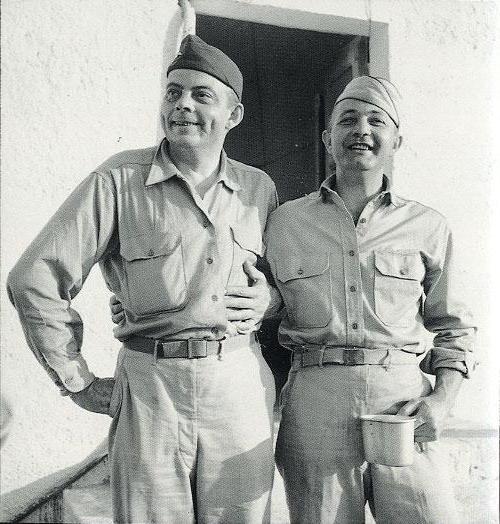
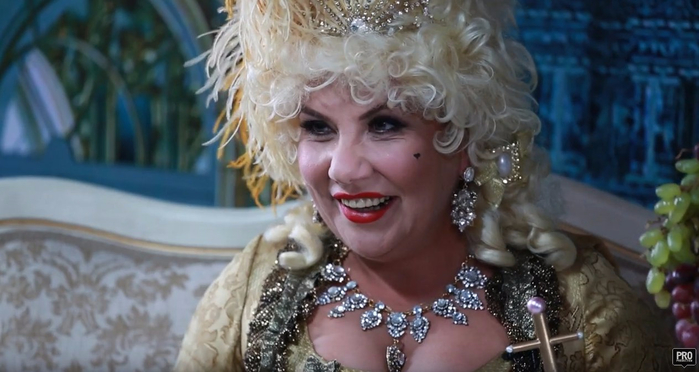
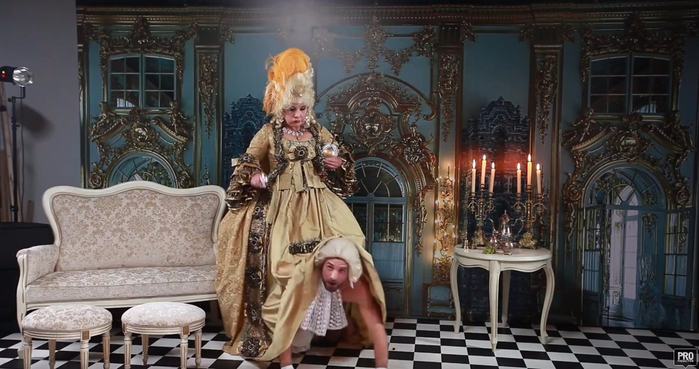
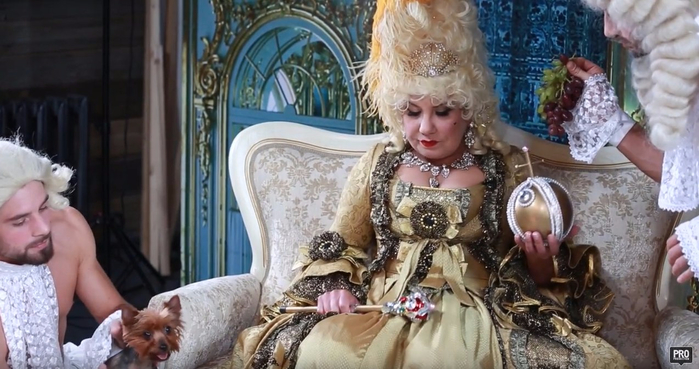
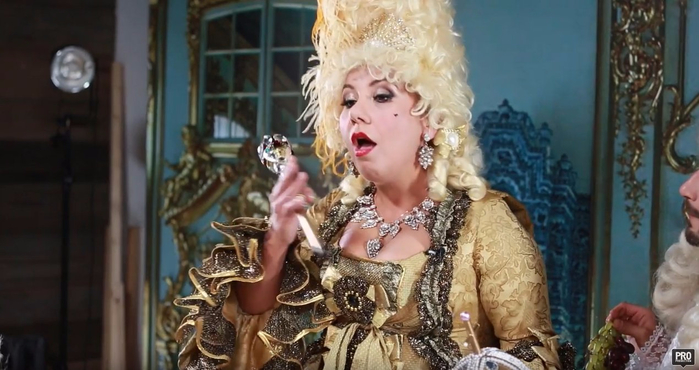

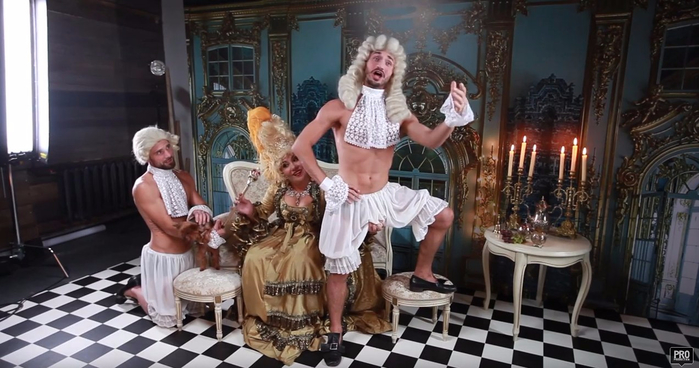
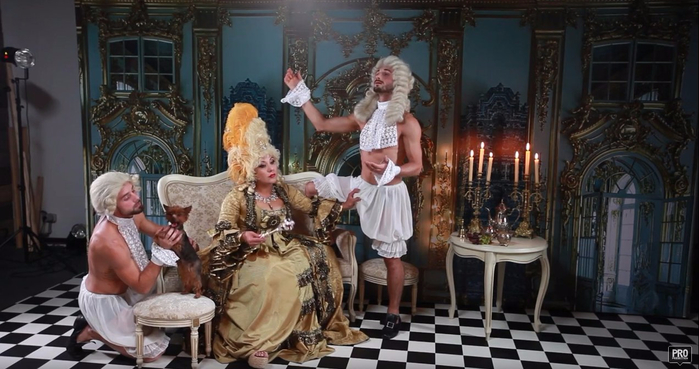
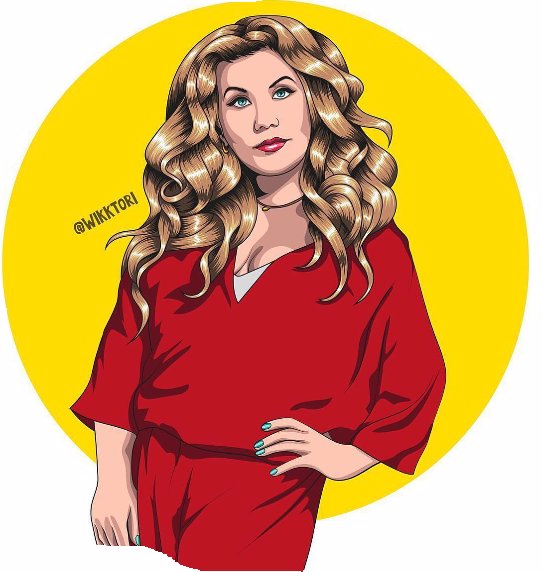
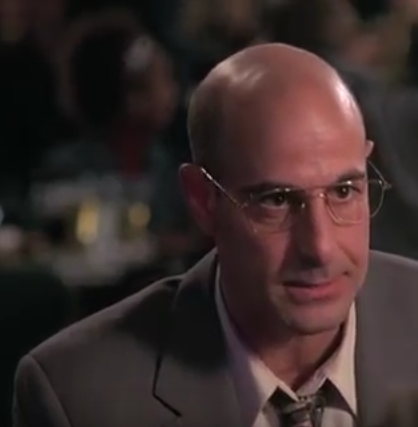

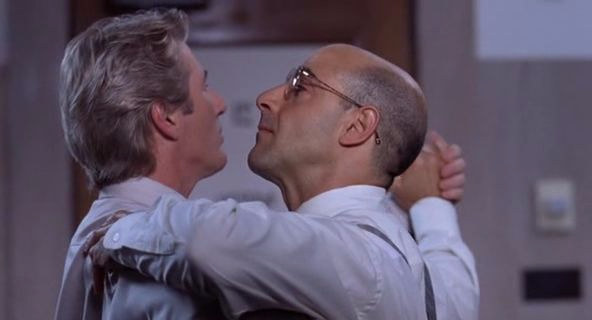
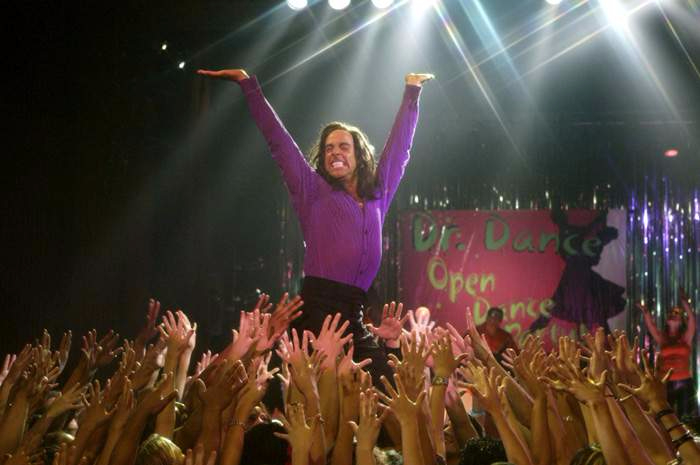
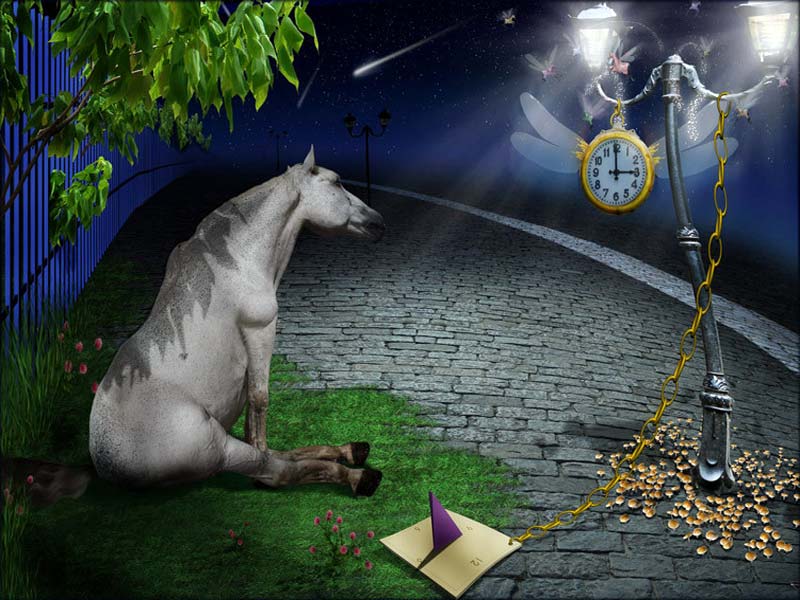

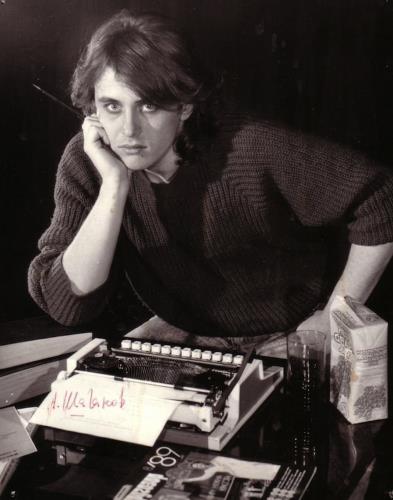


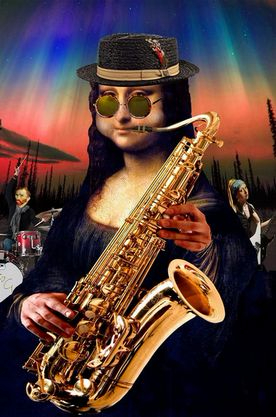






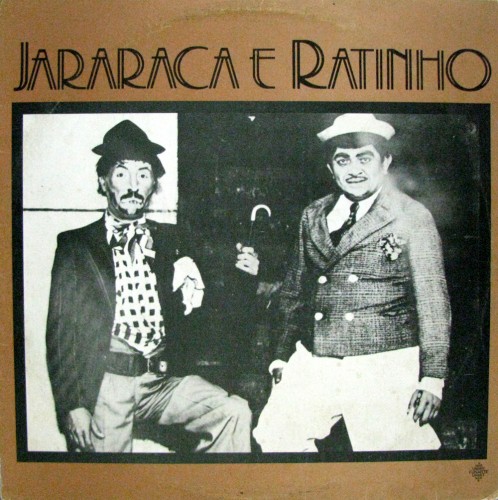

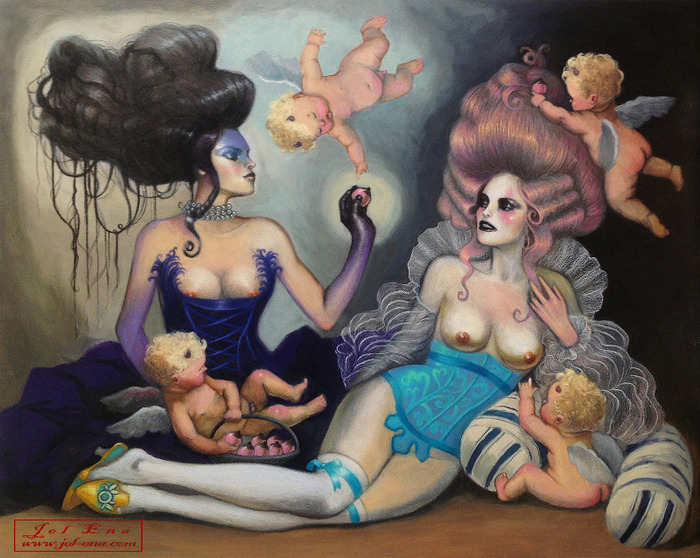
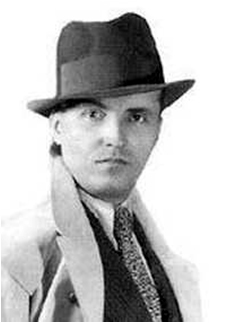
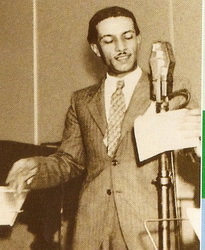

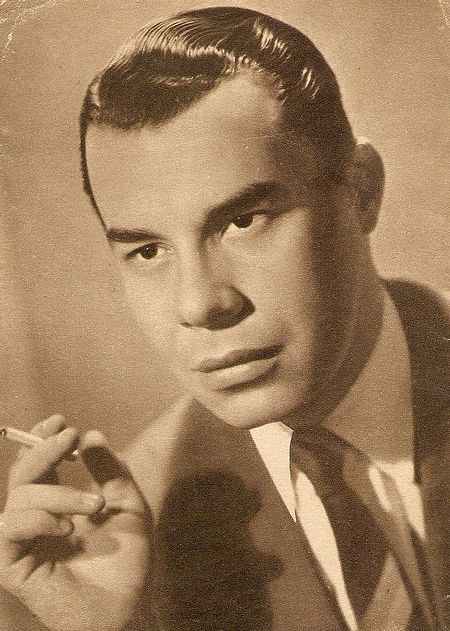
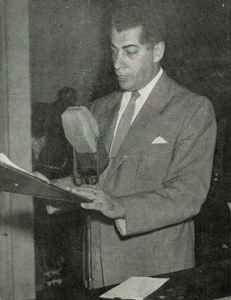
.jpeg.a2e8c99d2d5d64e7f7cb94867ccf9299.jpeg)